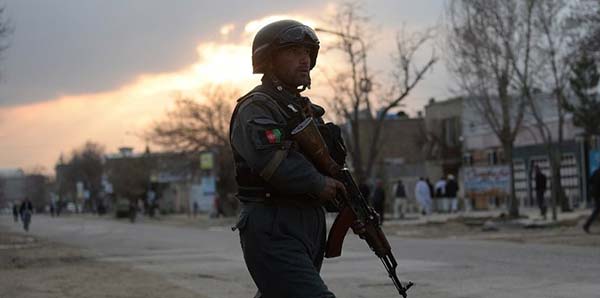The intensive anti-insurgency operation in the north is becoming a protracted campaign against the insurgent groups in a large swath of the country, eroding the government’s ability to contain the insurgency. While the government is struggling to tackle the growing insecurity across Afghanistan, intensive fights are unabatedly going on in the northern part of the country. According to local officials in Faryab and Kunduz provinces, more 70 insurgents are killed during recent fighting between the Taliban and the Afghan National Security Forces (ANSF). According to officials, Afghan National Security Forces (ANSF) have had gains in the fight against Taliban fighters, recapturing villages in Kunduz provinces that had recently fallen to Taliban fighters. In the meantime, ANSF have repelled a Taliban siege on local resistance forces in Takhar province. The government was forced to send reinforcement after over 50 local resistance forces were caught in a Taliban siege for several days.
With the insecurity persisting in Northern provinces, the anti-insurgency campaign aimed at improving security in the north is gradually becoming ineffectual. It was expected that the operation launched against the insurgent groups in Kunduz, Faryab, Badakhshan and other northern provinces would change the situation in a sooner time. However, the security limbo in the north is indicating that the challenge is far more challenging for ANSF. Taliban have been able to temporarily take some grounds in Northern provinces while the ANSF have been in a defensive state, struggling to repel Taliban assaults in Northern provinces. Despite that the Afghan National army and police forces have performed remarkably in keeping the militant groups at bay in the north, the anti-insurgency strategy of the government has not been effective in defeating the recent resurge of the Taliban in the north. The Taliban’s spring offensive has been aimed at making the most possible gains including taking grounds in provinces like Kunduz and other provinces in the north. The momentary gains for the Taliban have created an uncertain situation in the north and a sense of victory for the Taliban.
This year is proving a difficult year for ANSF who have taken full security responsibility in the country after NATO ended its combat mission in Afghanistan this year. The north has been sliding into a chaotic situation while other parts of the country are facing new threats from militant groups including the newly emerging group of Islamic State. This is while there is a visible lack of leadership for improving security at the highest levels of the government. The government has been unable to efficiently lead the fight against the Taliban offensive. Despite that the security officials believe this year would be ‘the year of survival’ for Afghanistan, the government has been unable to devise and implement a comprehensive transitional security and anti-insurgency strategy for defeating the Taliban offensive launched early this year. More importantly, since formation of the National Unity Government, the Afghan army has no minister to efficiently lead the military in fighting with the Taliban.
With the deterioration of security situation in the north, the first Vice President Gen. Abdul Rashid Dostum went to the northern province of Faryab to coordinate the government operation and local resistance against the Taliban. The local resistance forces fighting the Taliban play a key role in supporting the government-led military operation against the militant groups in the north. The government needs to support the local grassroots resistance against the Taliban and provide equipment and weaponry to the militia forces to effectively fight the Taliban and help containing the insurgency in the north. Vice President Dostum’s presence in the north is an incredible opportunity for the Afghan military and the local forces fighting the Taliban to help coordinate government efforts with the local resistance groups fighting the Taliban. If the government efficiently leads all security stakeholders in the fight against the Taliban including the army and police forces, local police and resistance groups, the security situation would quickly improve.
There is no hint in the recent developments for the leadership of the Taliban for quicker resolution of Afghanistan’s conflict or a decline in the armed conflict between government forces and the insurgent groups. Ironically, Mullah Omar’s death may not be a good news for the Afghan government’s war and peace efforts. Just before the news of Mullah Omar’s death, the Taliban sat face to face with an Afghan peace delegation for the first time in last fourteen years. Now with the uncertainty in leadership of the Taliban, the prospect for a peace deal with the militants is even more uncertain and imaginably unattainable. The new leader of the Taliban has warned of intensifying the ‘jihad’ in Afghanistan, saying that the Afghan government’s peace efforts are false. The recent Taliban peace-related flexibilities and the warning of the new Taliban leader are signs of confusion and uncertainties among the Taliban leadership as well as their stance on the peace efforts of the Afghan government.
The confusion regarding the Taliban leadership and the future of peace talks would directly affect the security situation in the country. If the Taliban refuse to come to table of negotiations, there would be a further prolonged war against the Taliban and other militant groups. The militant groups have had some gains in the north this year. Given the uncertainty regarding the peace process, the Taliban might further intensify their offensive in the northern part of the country. A war of erosion could potentially undermine government’s ability to contain the insurgency in the long run if the government fails to boost its anti-insurgency strategy for a transitional period. Taliban’s focus in the north is aimed at long-term victories which would give the militant groups a strategic ground of activity and a safe haven to operate in for the coming years. The security challenge in the north requires a more resolute will from senior leadership of the government to tackle the situation in the north.

